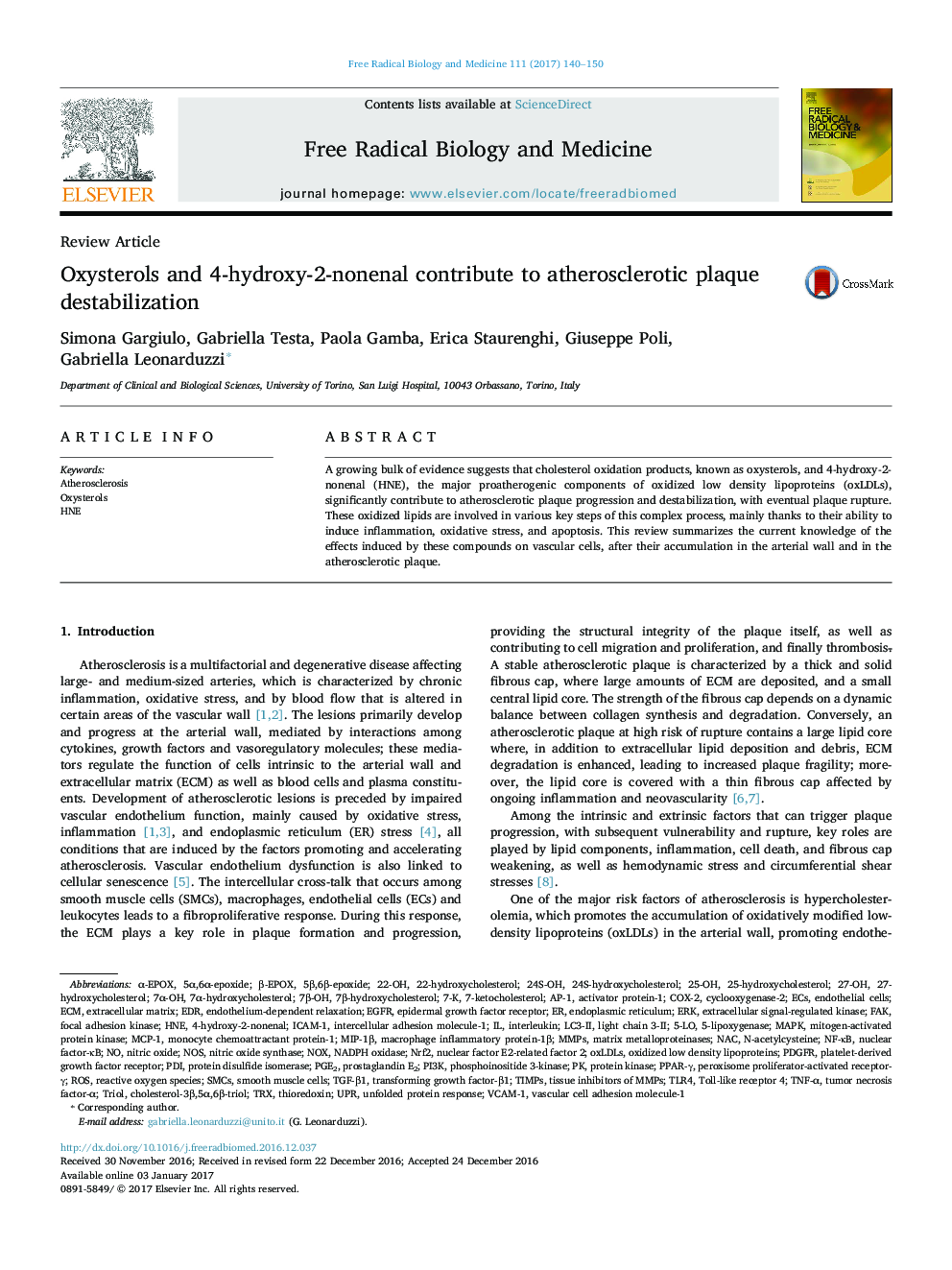| Article ID | Journal | Published Year | Pages | File Type |
|---|---|---|---|---|
| 5501638 | Free Radical Biology and Medicine | 2017 | 11 Pages |
â¢Atherosclerosis is characterized by oxidative stress and chronic inflammation.â¢Oxysterols and HNE are proatherogenic and contribute to plaque progression.â¢These oxidized lipids induce endothelial dysfunction and ECM degradation.
A growing bulk of evidence suggests that cholesterol oxidation products, known as oxysterols, and 4-hydroxy-2-nonenal (HNE), the major proatherogenic components of oxidized low density lipoproteins (oxLDLs), significantly contribute to atherosclerotic plaque progression and destabilization, with eventual plaque rupture. These oxidized lipids are involved in various key steps of this complex process, mainly thanks to their ability to induce inflammation, oxidative stress, and apoptosis. This review summarizes the current knowledge of the effects induced by these compounds on vascular cells, after their accumulation in the arterial wall and in the atherosclerotic plaque.
